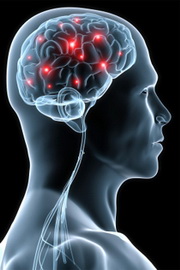Neurological Conditions
Neurological conditions have a big effect on the affected individual, his or her family and friends. This is because they affect the basic functions of the body which include thought, behavior, memory and speech. There is a lot of mystery surrounding the various conditions which results in misunderstanding. The diseases are a great source of discomfort and the accompanying disability is usually a cause of stigma.
This and the fact that despite years of research, little breakthroughs have been made concerning the causes and treatment of most of these conditions result in great misunderstanding and knowledge about the various ailments. The affected people normally have to live with various therapies that try to minimize the severity of the conditions. Some of the most widespread conditions include the following.
Alzheimer’s disease
This is a brain disorder largely associated with old age. The fact that people tend to become forgetful with age may prevent early diagnosis of this disease. It usually results in memory loss, poor movement and interferes with the speech ability and behavior of an individual. The disease is more prevalent in individuals above 85 years of age.
However, it also affects many before the age of 65 and early form of this condition also affects people as young as 30 years of age. It is a nerve degenerative disease and usually very fatal. It has no known cause although some form could be genetic. Up until now, there is no known cure for the disease and this leaves the affected individual using various therapies and they usually end up relying on family care.
Tourette syndrome
The Tourette syndrome is a complication affecting the basal ganglia area of the brain. It normally occurs between the ages of 6-7 and never past the age of eighteen. This condition cause uncontrollable urges within the individual resulting in twitching. The twitching is usually referred to as tics. It could be both motor tics, vocal tics and complex tics. They are usually repetitive involuntary actions to try and repress the urges.
One acute variation of the condition is coprolalia which results in receptive use of obscenities. This however, accounts for less than 15% percent of this condition’s victims. Its cause is not yet known and in the absence of diagnosis, the children could be assumed to be rude. The disease is genetic and boys are likely to be affected than girls.
Epilepsy
Another of neurological conditions that has remained a mystery over the years is epilepsy. It is a condition marked with repetitive seizures that can occur anytime anywhere. They usually come with convulsions, twitching, loss of consciousness drooling etc. It is nevertheless important to note that there are various forms of seizures and some are a bit subtle like absence seizures normally amongst children, where the child drifts off to another space for a few seconds.
The length of the seizures vary from a few seconds to a few minutes but any seizure past five minutes should be brought to a doctor’s attention. There is also no known cure for this condition though medicines are there that reduce their frequency and severity.

